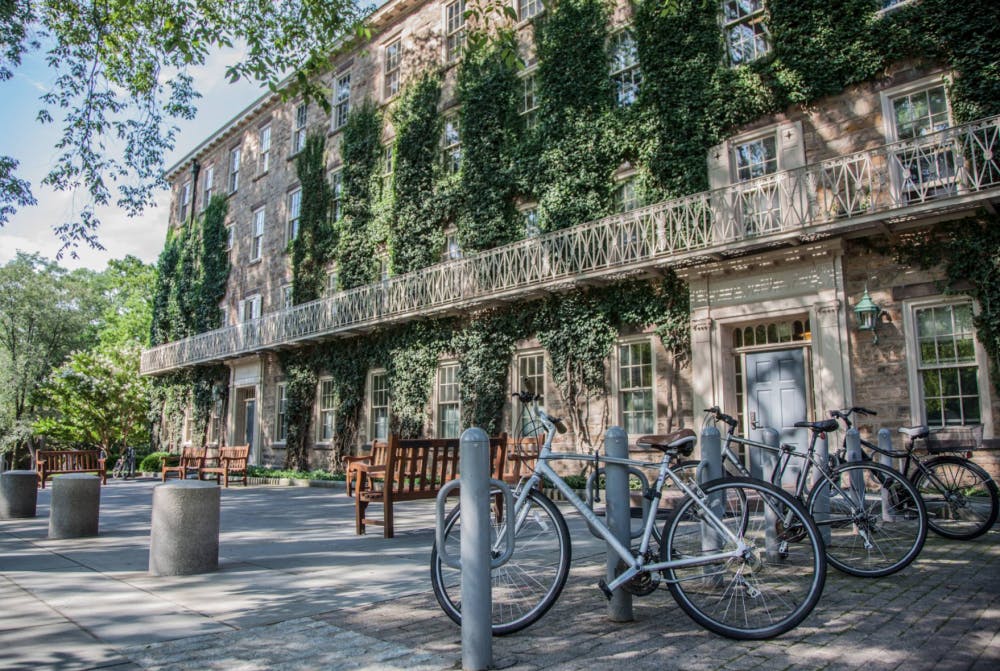On Aug. 1, Princeton University joined 13 colleges and universities in filing an amicus brief that asks the Supreme Court to uphold Grutter v. Bollinger, which allows admissions policies to consider race and ethnicity as one factor among many in the holistic admissions process. Amici urged the Supreme Court to uphold four decades of the precedent established in Grutter v. Bollinger.
The brief was filed in support of Harvard University and the University of North Carolina at Chapel Hill (UNC) in two cases brought up against them by Students for Fair Admissions, Inc.. The organization seeks to eliminate the consideration of race and ethnicity as one factor in the college admissions process. The group argued that the two universities’ admissions policies were unconstitutional under the 14th Amendment and unlawful under federal law.
Princeton University’s Office of the General Counsel spearheaded the effort to join the amicus brief, with support from President Christopher L. Eisgruber ’83 and other senior University leaders, according to Vice President and General Counsel Ramona E. Romero.
In an email to The Daily Princetonian, Romero emphasized that the University hopes to persuade the Supreme Court to reaffirm its “long-standing precedent” that holistic admissions programs at universities like Princeton are “entirely consistent with constitutional principles.”
“Holistic admissions programs strive to understand and evaluate all applicants on their own merits, with a full appreciation of every aspect of each individual’s identity, experience, and accomplishments, including the impact of their race and/or ethnicity,” Romero wrote.
Romero also mentioned the importance of the University maintaining its commitment to diversity, equity, and inclusion initiatives, particularly during the admissions process.
“As President Eisgruber has said, ‘A genuine dedication to excellence requires meaningful commitments to diversity, equity, and inclusion.’ Making our voice heard on this important issue reflects our commitment to the pursuit of excellence and societal impact by ensuring that we educate talented students from all backgrounds,” Romero wrote.
The University was joined by the entire Ivy League in the brief, along with California Institute of Technology, Carnegie Mellon University, Duke University, Emory University, Johns Hopkins University, University of Chicago, Vanderbilt University, and Washington University in St. Louis.

Amici emphasized the importance of student body diversity, including racial and ethnic diversity, to each of their own educational missions.
“The diversity that Amici seek in their admissions processes is nuanced and multifaceted; it encompasses myriad perspectives, talents, experiences, goals, backgrounds, and interests,” the universities wrote in the brief.
“Amici strive to enroll a diverse student body because Amici have found that doing so significantly strengthens the educational experience Amici can provide to their students,” the universities continued in the brief. “Diversity prepares Amici’s graduates to pursue innovation in every field, to be active and engaged citizens equipped to wrestle with the great questions of the day, and to expand humanity’s knowledge and accomplishment.”
Amici have long standing admissions policies similar to those the Supreme Court upheld in Grutter v. Bollinger and have experience with the holistic admissions process. The University, along with Amici emphasized an individualized and holistic review of applications, including race and ethnicity as one factor among many, as the “best means that universities can employ to achieve meaningful diversity.”

Amici collectively agreed in the brief that it is “impossible” to understand and appreciate each applicant’s perspectives and experiences while “turning a blind eye” to race and ethnicity.
“For many applicants, their race or ethnicity has influenced their identities, experiences, and perspectives — sometimes profoundly,” the universities wrote in the brief. “Recognizing that does not mean embracing the canard that all applicants are affected by their race in the same way; it means acknowledging the simple truth that race can and does affect applicants in many different ways.”
Romero also emphasized the First Amendment and the value in letting universities make their own academic judgments.
“Courts, including the U.S. Supreme Court, have long recognized that colleges and universities have significant latitude to make academic judgments about how best to accomplish their educational missions, including judgments about the value of diversity,” Romero wrote. “That flexibility is a crucial component of a university’s autonomy and academic freedom, values grounded in the First Amendment.”
“As explained in the brief, ‘It would be an extraordinary and detrimental infringement on Amici’s academic freedom for [the] Court to blindfold universities to any part of their applicants’ submissions, including race or ethnicity,’” Romero continued.
The Supreme Court is expected to hear arguments in the cases involving Harvard and UNC, Students for Fair Admissions, Inc v. President and Fellows of Harvard College and Students for Fair Admissions, Inc, v. University of North Carolina et al., this fall.
Lia Opperman is an Assistant News Editor who often covers University affairs, student life, and local news. She can be reached at liaopperman@princeton.edu, on Instagram @liamariaaaa, or on Twitter @oppermanlia.








